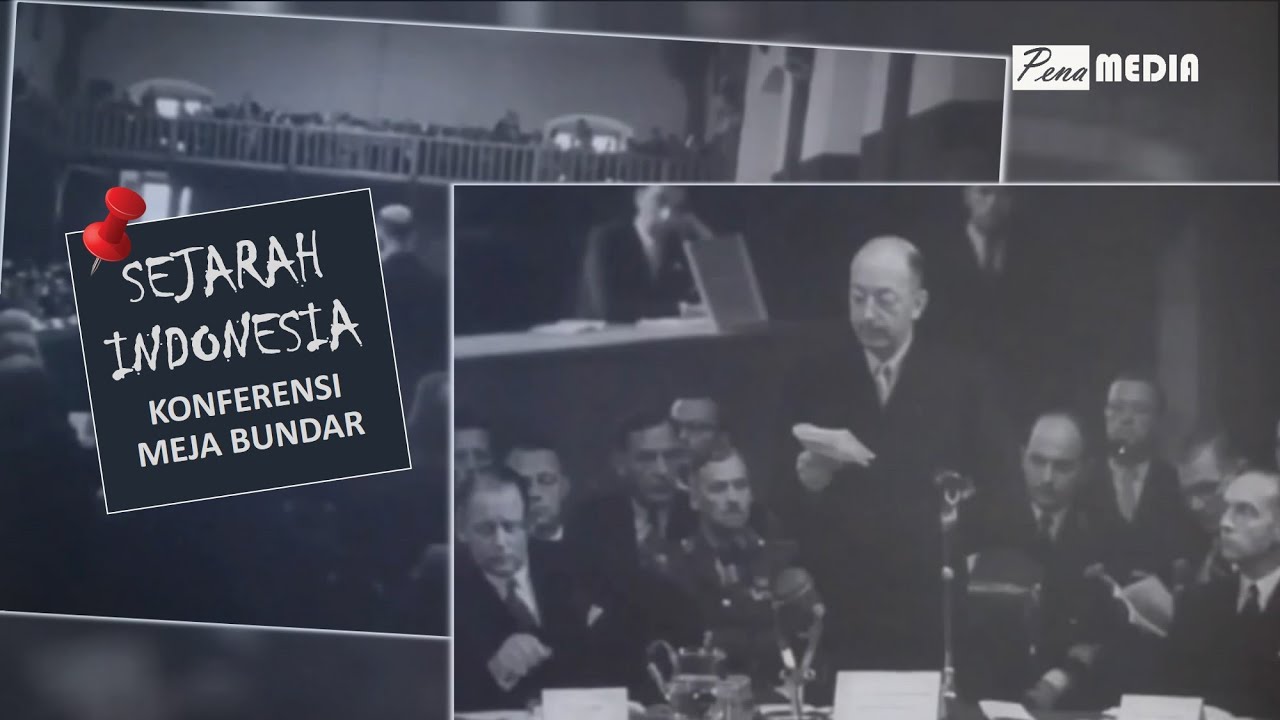Upaya Mempertahankan Kemerdekaan Indonesia | Perjanjian Linggarjati, Renville, Roem-Roijen dan KMB
Summary
TLDRThe video discusses Indonesia's struggle for independence, highlighting key diplomatic negotiations with the Netherlands, including the Linggarjati, Renville, and Roem Royen agreements, as well as the Round Table Conference. It details the outcomes of these agreements, such as the recognition of Indonesia's sovereignty over certain territories and the establishment of the Republic of Indonesia Serikat. Despite initial successes, the agreements faced challenges, leading to military aggression from the Dutch. Ultimately, the video emphasizes the complex interplay of diplomacy and military actions that shaped Indonesia's path to independence.
Takeaways
- 🇮🇩 Indonesia's struggle for independence involved not just military efforts but also diplomatic negotiations.
- 📜 The Linggarjati Agreement was signed on March 25, 1947, recognizing Indonesia's de facto sovereignty over Java, Sumatra, and Madura.
- 🗓️ The Linggarjati Agreement stipulated that the Netherlands must withdraw from Indonesia by January 1, 1949.
- ⚖️ There was a mix of support and opposition within Indonesian society regarding the Linggarjati Agreement.
- ⚔️ The Dutch declared they were no longer bound by the Linggarjati Agreement on July 20, 1947, leading to the outbreak of Military Aggression I.
- 🚢 The Renville Agreement, signed on January 17, 1948, took place aboard a U.S. warship and involved mediation by the three-nation commission.
- 🗺️ Under the Renville Agreement, the Netherlands only recognized Central Java, Yogyakarta, and Sumatra as parts of Indonesia.
- 🔄 The Roem Royen Agreement aimed to resolve issues before the Round Table Conference and was signed on May 7, 1949.
- ✋ The Roem Royen Agreement called for the cessation of guerrilla activities and the return of the Indonesian government to Yogyakarta.
- 🤝 The Round Table Conference resulted in the recognition of the Republic of Indonesia as an independent sovereign state.
Q & A
What were the main strategies used by Indonesia to maintain its independence?
-Indonesia utilized both military battles and diplomatic negotiations, including treaties and discussions.
What was the Linggarjati Agreement?
-The Linggarjati Agreement was a negotiation between Indonesia and the Netherlands that recognized Indonesia's independence on March 25, 1947.
What were the key outcomes of the Linggarjati Agreement?
-The agreement resulted in the Netherlands recognizing Java, Sumatra, and Madura as part of Indonesia, agreeing to withdraw by January 1, 1949, and forming the United States of Indonesia.
What challenges arose during the implementation of the Linggarjati Agreement?
-The implementation faced difficulties, notably when the Dutch Governor-General declared that the Netherlands was no longer bound by the agreement, leading to military aggression.
What was the Renville Agreement?
-The Renville Agreement, signed on January 17, 1948, involved negotiations on a U.S. warship and was mediated by a three-nation commission, recognizing parts of Indonesia as its territory.
What were the main provisions of the Renville Agreement?
-It included the recognition of Central Java, Yogyakarta, and Sumatra as Indonesian territory, the establishment of a line between Indonesian and Dutch-held areas, and the withdrawal of Indonesian troops from certain areas.
What was the purpose of the Roem-Royen Agreement?
-The Roem-Royen Agreement aimed to resolve issues concerning Indonesia's independence before the Round Table Conference in The Hague, signed on May 7, 1949.
What were the key points from the Roem-Royen Agreement?
-It included a ceasefire for Indonesian armed forces, the return of the Indonesian government to Yogyakarta, and a cessation of Dutch military operations.
What was achieved during the Round Table Conference (KMB)?
-The KMB resulted in Dutch recognition of the United States of Indonesia as an independent nation, among other agreements regarding West Irian and economic matters.
What were some significant outcomes from the KMB?
-Outcomes included the recognition of the United States of Indonesia's sovereignty, a year for settling the status of West Irian, and the return of Dutch property rights.
Outlines

This section is available to paid users only. Please upgrade to access this part.
Upgrade NowMindmap

This section is available to paid users only. Please upgrade to access this part.
Upgrade NowKeywords

This section is available to paid users only. Please upgrade to access this part.
Upgrade NowHighlights

This section is available to paid users only. Please upgrade to access this part.
Upgrade NowTranscripts

This section is available to paid users only. Please upgrade to access this part.
Upgrade NowBrowse More Related Video

Sejarah Konferensi Meja Bundar

MATERI TWK CPNS 2021 Perundingan Internasional pasca kemerdekaan

Strategi Diplomasi Mempertahankan Kemerdekaan RI: dari Linggarjati hingga KMB

Perjanjian dalam rangka mempertahankan kemerdekaan Indonesia

Perjuangan Mempertahankan Kemerdekaan Indonesia Dari Ancaman Sekutu dan Belanda | Wawasan Kebangsaan

STRATEGI DAN BENTUK PERJUANGAN DIPLOMASI DALAM MEMPERTAHANKAN KEMERDEKAAN (PART 2)
5.0 / 5 (0 votes)